On The Shoulders Of Giants
“Writing is easy. You only need to stare
at a piece of blank paper until your forehead bleeds.” – Douglas Adams
When I set out
to write “Her Majesty’s Will,” I was scared. Why? Because I wasn’t going to be able
to rely on my usual bag of tricks. I was setting out to do something I’d never tried
before. I was going to write a Comedy.
Now technically, Comedy doesn’t mean funny. In
the loosest sense, it means it has a happy ending – Shakespeare always ends his
Comedies with a marriage, sometimes accompanied by a song. Aristotle tells us
that Tragedy is about grand things and noble people, while Comedy is about
small things and ignoble people (Mel Brooks says that Comedy is about Tragic
things happening to other people).
But today if you
say you’re writing a Comedy, everyone expects to laugh. And when I first came
up with the notion of filling in the gap of Shakespeare’s ‘Lost Years’ by
making him a hapless spy, I knew I couldn’t treat it as one of my ‘serious’
novels. It was a silly idea, and had acknowledge that fact. It had to be funny.
The problem with
that is, simply, I’m not funny. I’m in theatre, so I know some insanely
talented funny people, and that’s not me. I have a very dry sense of humor, and
I loathe most sit-coms and any movie that relies on embarrassment for a laugh.
I like (some) buddy comedies, (most) screwball comedies, and anything full of wit
(hello, Douglas Adams and Eddie Izzard) or ribald badinage (hello, Shakespeare
and Aristophanes).
So when it came
time to be funny, I went to the well of my favorite humorists to figure out the
elements of what I like in a Comedy.
Not to learn.
To steal.
“Mediocre writers borrow. Great writers
steal.” – T. S. Eliot
Naturally, any
Comedy about William Shakespeare has to employ Shakespeare’s own comedic devices
– cross-dressing, mistaken identities, disguises, musicians, mis-timings,
clowns, bawds, and big reveals (if I could have added a ship-wreck, I would
have!). The Bard thus gave me a mental check-list to cover. A good start. Besides,
Shakespeare stole the plot for every story he ever wrote. So he couldn’t judge
me for thieving.
That raised the
issue of a plot. But in perfect truth, I didn’t really care about the plot. Not
this time. I simply looked at a list of events during the years before
Shakespeare appeared in London, and right there was the Babington Plot.
Elizabeth, Mary, Walsingham, Catholics, spies, and a beer barrel? Sold!
I also knew
right off the bat that this was a buddy comedy, teaming Will Shakespeare with
the wily, mercurial Kit Marlowe (who really was a spy). At once I recalled my
favorite books in that vein, the Myth Adventures series by Robert Asprin. I
actually knew Bob back when I was a kid, and to this day I love the adventures
of Aahz and Skeeve.
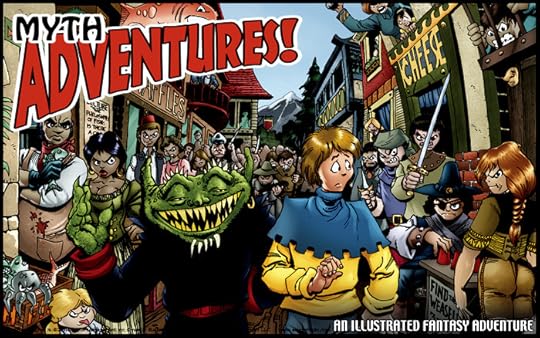
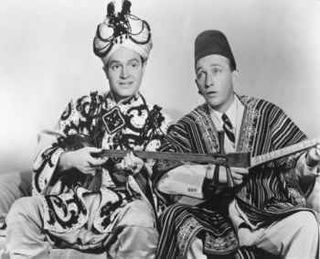 Of course, those
Of course, those
books are Bob’s own homage to the Road Movies of Hope and Crosby. So the book
became a Road Movie. That gave me the framework. Watching those films, I love
how Hope and Crosby are always undermining the other, and through their
self-interest they create their own perils. Every decision they make to save
themselves only gets them in deeper. In their self-assurance and arrogance, they
were their own worst enemies.
Where had I seen
that before?
“Comedy is unusual people in real
situations; farce is real people in unusual situations.” – C. M. Jones
Before Shakespeare, before Aristotle, before
Bob Asprin, Eddie Izzard, or Douglas Adams, I learned Comedy from one source,
and one source only: Charles M. Jones.
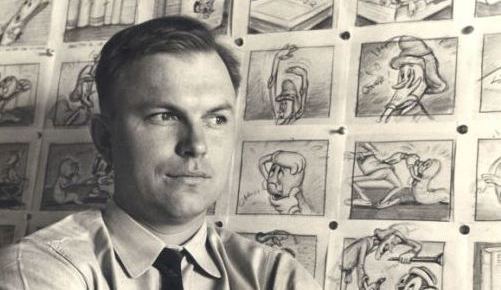
It mortifies me to think that there might be
people alive in the world who do not know his name. But all one has to do is
start singing “Kill the Wabbit, Kill the Wabbit!” and everyone smiles and nods.
Yeah. That’s him. One of Bugs Bunny’s creators, the inventor of Road Runner,
Coyote, and Pepe le Pew, and the re-inventor of Daffy Duck. The man who gave
the Grinch his Grinchy smile. That’s Chuck Jones.
Chuck had his
own inspirations – Charlie Chaplin, H. L. Mencken, and Mark Twain. You can see
his comic timing and commentary on humanity come from them. In marvelous,
6-minute snippets, he distilled them into pure comedic gold. I’ve watched all of Chuck’s cartoons, from his early attempts to be
as cute as Disney through him slowly finding his voice to the height of his
career, when he crafted the best comedic moments of the 20th Century.
Because Chuck understood that comedic heroes never go looking for trouble, just
react when it arrives. Moreover, he created the best buddy comedy team of all
time in his pairing of Bugs and Daffy. The one is who we want to be, and the
other is who we are. Or as film teacher Richard Thompson once said, “Bugs
talks, and Daffy talks too much.”
Why hello, Will. Hello there, Kit.
“Writing is easy. All you have to do is cross out the wrong words.” – M. Twain
So – theme, tricks, frame, ‘plot,’ all
complete. All that was lacking was the Voice.
More than any other kind of story, Comedy has a
voice. On stage or in film, it’s often a literal voice, with a character
looking at or talking directly to the audience. But sometimes it’s the frame of
the shot, the juxtaposition of lines and action, or simply lingering an extra
beat to watch a comedian react. Chuck called it a Motivated Camera, and the
motivation is sharing something with the audience. Like laughter itself, Comedy
is best when it’s shared.
It’s hard to pull off. But in novels, it
becomes even trickier. The true master of this was Douglas Adams, who never
hesitated to use his narrative voice to be absurd and wonderful. Knowing that I
am certainly no Douglas Adams, I found myself thinking, of all people, of
Charles Dickens. Because while he was never absurd, he also didn’t stint from
commenting upon his characters: “Oh! But he was a tight-fisted hand at the
grindstone, Scrooge! a squeezing, wrenching, grasping, scraping, clutching,
covetous old sinner!” Imagine the shock and sneers if some modern author
described a character in such a way. But it’s a tradition stretching proudly
back from Homer to story-tellers around campfires to minstrels and bards – the
active voice of the narrator. Also wonderfully used in the Goofy cartoons of
the early 1940s (watch “How To Ski”), as well as top and bottom of Chuck’s
forgotten classic “Fin’n Catty.” So I decided to employ that same voice – arch,
but never winking, and never afraid to comment on the action or the people.
Thus I was ready. Armed with the best elements
of my favorite Comedies, I jumped in.
Then stopped.
Because it wasn’t funny.
“The secret to humor is surprise.” Aristotle
I was daunted. Oh, the tone was right, and the
action was fine. But there was one element that I had entirely neglected, a key
ingredient, the je ne sais quoi, an
X-factor that kept it from singing, kept it from leaping off the page, kept it
from making me want to keep writing.
So I put the story in a drawer for a couple
years. I knew what I wanted, but I decided I just wasn’t funny enough to pull
it off. Maybe I’d grow funnier with age – though it hadn’t happened so far.
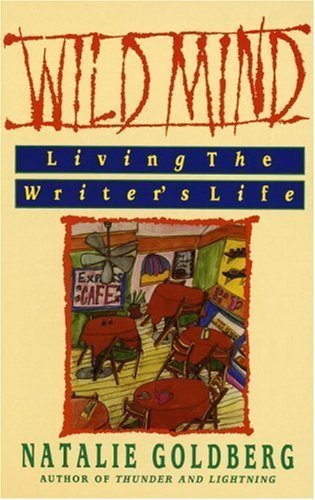 There’s a great chapter in Natalie Goldberg’s “Wild
There’s a great chapter in Natalie Goldberg’s “Wild
Mind” where she talks about the perils of wanting something too much. That’s
happened to me in lots of auditions. I want it too badly, so I blow the
audition. Whereas if I’m relaxed, if I’m myself, that’s when I tend to get
cast. It’s a truth I’ve known since I was 19, but like all truths in my life,
it’s one I have to keep relearning.
Here’s another truth, one I also forget to my
peril – the answer is always in the research. That’s where inspiration lies.
In the case of this novel, the answer was in
Stephen Greenblatt’s marvelous “Will In The World,” a book not strictly about
Shakespeare himself, but about the world he inhabited, extrapolating out small
details from what little we know and putting them all firmly in context. It is
a treasure on its own, but to me, it gave me the thing I’d been lacking, the
true key to crafting the story I wanted.
I had forgotten that, more than anything else,
all great Comedy has to have heart.
“Comedy is defiance. It’s a snort of contempt in the face of fear
and anxiety. And it’s the laughter that allows hope to creep back on the
inhale.” – Will Durst
A comic hero rises from pathos, from a desire
to be understood. He also owns strong indignation at injustice. It was
something Chuck knew, and wrote about frequently: “Like all heroes and
heroines, Bugs Bunny grew strong when strong villains began confronting him…
Bugs never engages with an opponent without reason. He is a rebel with a cause.”
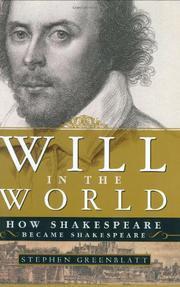 In Greenblatt’s book, I saw glimpses of a
In Greenblatt’s book, I saw glimpses of a
potential comic hero in Will: a brilliant, frustrated, eager, disappointed,
gullible, cynical, empathetic, cutting, witty, and humble young man. I know
Shakespeare from his plays. But by putting him firmly in his world, he became
more human. He became the mass of contradictions that we all are, that Comedy
seeks to exploit. He became that rebel with a cause. With something to say.
Then there’s this, too: “Bugs emerges into the
battle zone as a sort of cross between Groucho Marx, Dorothy Parker, James
Bond, and Errol Flynn. Bugs loves the thrill of the chase. Once engaged, he is
the most enthusiastic of participants: saucy, impudent, and very quick with
words in circumstances that would confound most of us.” Ah, yes. That’s my man.
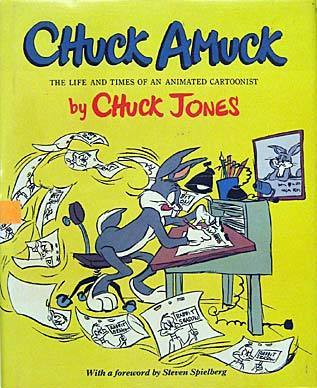 And Kit? Again Chuck writes: “Bugs succeeds
And Kit? Again Chuck writes: “Bugs succeeds
because he is successful, but Daffy needs great determination in the fight to
win the recognition he knows he deserves… A public loss of dignity will all but
destroy him. The more you know Daffy, the better you like him, because you are
going to recognize yourself.”
The secret to Comedy is humanity. If Tragedy is
about rising above our frailties and foibles to be our best selves, Comedy
exploits those frailties and foibles, but never maliciously. Lovingly. With
empathy.
“Life is a tragedy when seen in close-up,
but a comedy in long-shot.”
– Charlie Chaplin
So when I finally sat down to write Her
Majesty’s Will, it practically wrote itself. Standing on the shoulders of
comedic giants – Twain, Mencken, Chaplin, Hope and Crosby, Adams, Asprin,
Jones, and Shakespeare himself – they all reminded me that Comedy is all about
us getting a happy ending we probably don’t deserve. Will gets better than he
deserves in this novel. Kit absolutely gets better than he deserves. And this
book turned out far better than I ever deserved.
The best part was that I was smiling the whole
time I wrote it.
(One last Chuck quote: “The rules are simple. Take your work, but never yourself, seriously.”
Amen, brother.)



